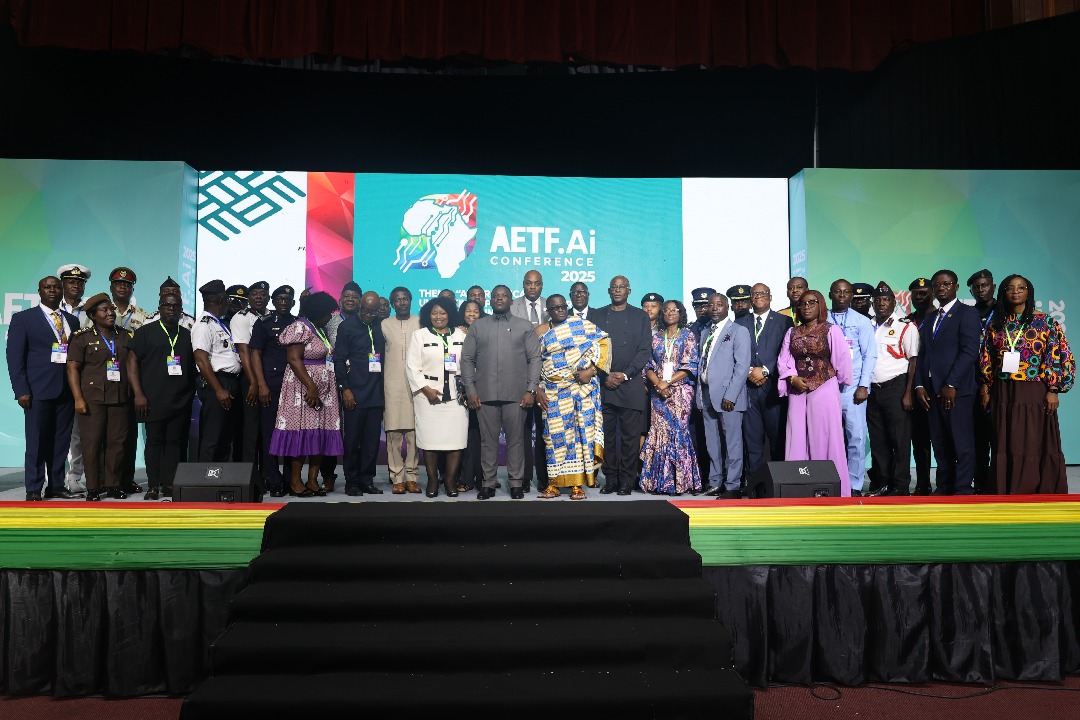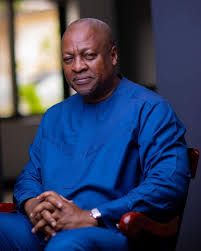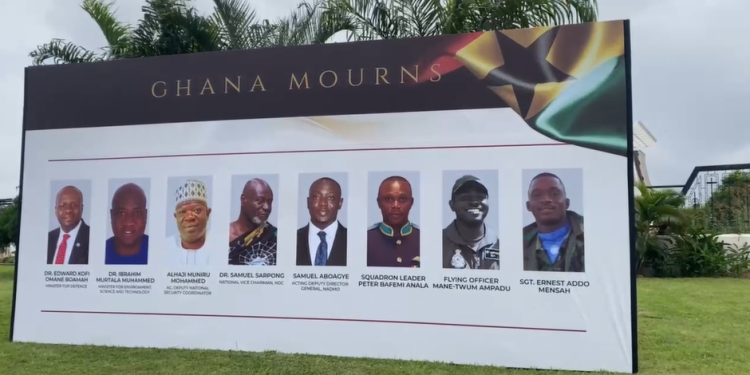By Francis Kobena Tandoh
Chief of Staff Julius Debrah on Wednesday urged African countries to adopt inclusive national Artificial Intelligence (AI) strategies to realize the full potential to engender development on the continent.
In a speech read on his behalf at the Africa Education Trust Fund (AETF). At the AI Conference 2025 under the theme “AI for Africa: Unlocking opportunities for education, innovation, and sustainable development,” the Chief of Staff observed AI has caught everyone’s attention because of its speed of enablement and disruption.
According to him, AI has embedded itself in the daily lives of Africans, as it is shaping classrooms, farms, hospitals, and our economies, and he urged countries on the continent to leverage it.
“Let us choose to harness this technology for progress and for growth, and not for the few, but for the larger community. Let us unlock the full potential of AI for every child in Africa as well as in Ghana, in every classroom, for every farmer, in every field, for every patient, in every clinic or hospital. Together let us build an Africa where innovation is inclusive, development is sustainable, and education is empowered by intelligence, both artificial and human alike.”
AI, he emphasized, is helping us build resilience and self-reliance, but he stressed that the reality is that the full potential of AI will not be realized with passive efforts.
Hon. Debrah said it requires deliberate and strategic action, as a result of which the Ghana government has developed a national AI strategy in line with its ambition to make Ghana the AI hub of Africa through the introduction of the “one million coders program.”
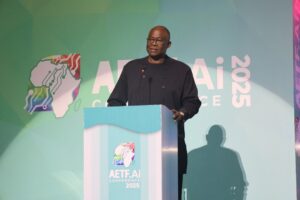
Minister for Communications, Digital Technology, and Innovation Samuel Nartey George observed that intelligent technologies are reshaping every aspect of the lives of the people, from how we work to how we govern and how we learn to how we grow.
He stressed that Ghana is proud to be at the forefront of this transformation, as his ministry hosted the first-ever AI Boot Camp for Cabinet Ministers, a pioneering initiative in partnership with the United Nations Development Programme (UNDP) aimed at deepening executive understanding of artificial intelligence potentials and implications for national development.
According to him, the initiative laid the groundwork for a bold and visionary directive from President John Dramani Mahama, mandating that all ministries, departments, and agencies adopt the use of artificial intelligence by the end of the year 2026.
“This directive is not just aspirational; it is actionable. It reflects our commitment as a country to embedding artificial intelligence across the public sector to enhance service delivery, policy formulation, and citizen engagement.”
The Communications Minister announced that Ghana has developed a National Artificial Intelligence Strategy, which outlines a strategic framework for the ethical, inclusive, and innovative deployment of AI.
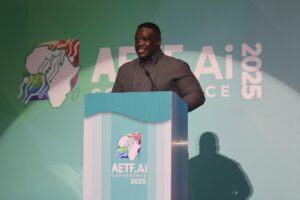
The strategy focuses on four areas. One, building robust digital infrastructure and data governance systems two, supporting AI research startups and public-private partnerships three, promoting digital literacy and workforce readiness, and four, ensuring ethical standards and safeguarding national interest.
Ambassador Ekwow Spio-Garbrah, Chairman for AETF, called on African countries to use artificial intelligence to create one African language to promote continental unity.
He said, “One thing I hope we can leave here with is that we can use artificial intelligence to create one African language. I believe that language is a unifier of all things.
Being able to speak to somebody and letting them understand you, and you also hear them and you understand them, is one of the most critical ingredients for African unification, which our illustrious leaders spoke about from the days of Kwame Nkrumah, when he spoke about how Africa must unite.
He explained that Africa has been trying to unite for at least 70 years but that has been difficult because colonial languages form barriers for us.
So if we don’t conquer that linguistic barrier, it will be difficult for us, so let us take advantage of AI to create a Pan-African language to help us in our activities. Enditem
Source: Ghana Eye Report
Share Us

